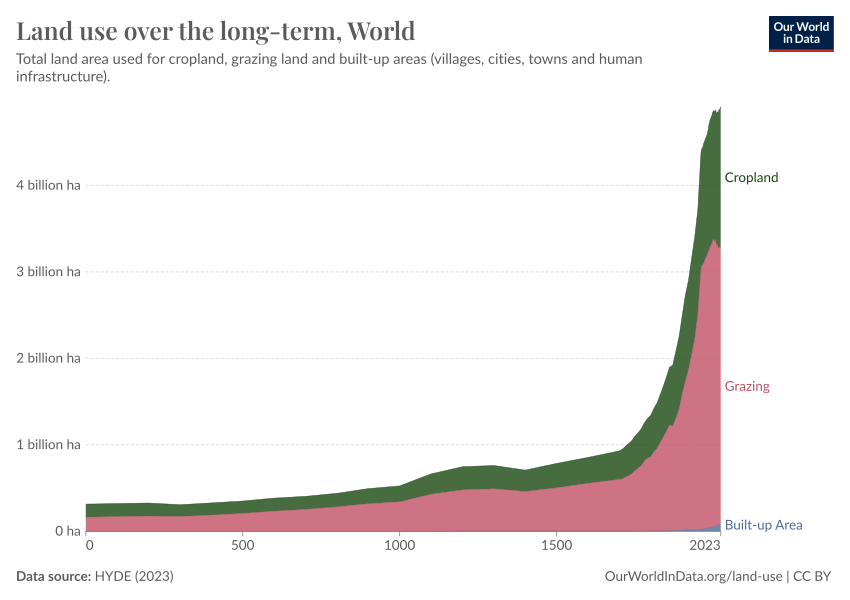There has been since 1897 https://en.wikipedia.org/wiki/Sabatier_reaction
Name a commercial plant using it, producing gas for sale (or even on-site use) at a cost equivalent from buying it from normal sources and in commercial quantities. It has to be a practicable process, not merely possible, that operates economically at the scales of current and proposed world usage. One assumed that an intelligent person would take that as read in the circumstances under discussion. And where does one find a convenient source of concentrated CO
2 that isn't a plant burning fossil fuel to produce energy, a cement works, a brewery or a similar primary user of either energy or biomass? One might like to examine the thermodynamics of the first listed to figure out why that isn't a runner for practical purposes.
Also not keen on "over population, running out of land" outdated alarmism. Definitely aware of running out of historical energy resources and ever increasing energy demand + climate change but over population and food supply (apart from instability due to climate change) is not a current issue everywhere apart from Africa. Getting off topic though.
"Running out of" isn't the same as "have run out of" so saying it isn't a
current problem doesn't solve the issue, we are discussing the
future of aviation, not the
now. You might not be "keen on it", personally I loathe the idea, but it is unfortunately true. Just look at these two graphs (from
here) and tell me where the land to grow fuel crops will come from.


Add population growth:

If those three put together is not a disturbing trend then I don't know what is. Adding more land use for mass biofuel production on top of that would be a farcical idea.
Remember that all this started with someone trying to convince a "Green party MLA" that [implicitly Green] electric aviation isn't a realistic possibility at current scale for aviation, that the waving of a technological magic wand won't solve the problem. Aviation is only responsible for 2.5% of global CO
2 emissions but is still growing along with all the other sources. One can't look at
just finding replacement energy sources for aviation, it won't happen in isolation. If we, say, move to massive production of biofuels for aviation won't we also have other uses for those biofuels, won't we want to produce biofuels for road vehicles, home heating and all the other uses? One has to consider the big picture before one can say that one has a realistic solution. Here, the big picture says that biofuel production for aviation isn't the solution.
Further, any claims that synthetic methane production is a feasible alternative on this scale are also unrealistic. One only has to factor in the energy cost of obtaining CO
2 from anywhere other than existing concentrated sources that all use either energy or biomass. Any diffuse source of CO
2 would be energetically uneconomic. It's more "
let's wave a technological magic wand and it'll all go away" thinking that the first mentioned Green party MLA is guilty of. As engineers and scientists one hopes that we are above pinning our hopes on that kind of thinking.